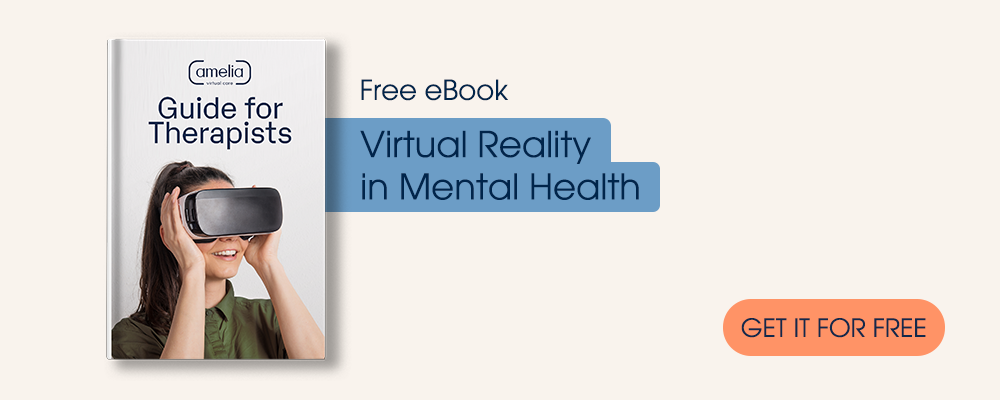Effective habits to teach patients for a less anxiety-filled and more resilient 2021
2021 doesn’t only have to be a new year. It can represent a new opportunity for your patients to start afresh and integrate habits that contribute to a healthier, more resilient mindset. We at Amelia Virtual Care provide some helpful tips, which you can share and expand on with your patients. 2020 has been a challenging year for many individuals. A pandemic, a declining economy, and the repeated lockdown restrictions have set a somber tone. You have probably witnessed firsthand how patients have reported higher levels of stress and anxiety due to the lingering uncertainty in the air. Yet, as two COVID-19 vaccines become more and more available in many countries, is there finally a light at the end of the tunnel? Will 2021 stand to be a better year than the tumultuous 2020?While the pandemic may fade away into history books, anxiety will remain. This global health crisis has highlighted that mental health problems did not suddenly appear because of a viral outbreak. Instead, mental health has long been a neglected area, and many people have not been equipped with the knowledge or tools to combat situations of unease and worry. To start 2021 with the right foot, Amelia Virtual Care has put together a list of 5 effective habits to strengthen resilience and manage emotions better. You can teach these helpful tips to your patients to accompany therapy sessions and ensure a less anxiety-ridden yet more fulfilling new year.
1. Observe your emotions and reserve judgment
There is a story of a young man who asked a wise sage about acquiring inner peace. The man was filled with racing thoughts, many of which he did not like. So, the sage takes him alongside a riverbank and says to him, “Do you see the fish swimming below? What do they look like?” The man respectfully replies, “Why, of course! Well, some are big, and others are small.”And the sage responds, “So, now I ask you: are you the fish?”The young man turns to him and answers, “No. I am not.” “Exactly,” says the sage. “You are not the fish, as much as you are not your thoughts or emotions. Train your mind to perceive those feelings as the fish paddling down the stream, and you will find the calmness that you have been seeking.”Like in this short story, encourage your patients to observe and identify their emotions and thoughts. It is not necessary to pass judgment. Doing otherwise limits individuals to a subjective moral framework and draws their attention away from confronting what could be understandable and logical emotions.
2. Establish and respect daily habits
To have a fresh mind ready to conquer worries and troubles, reiterate the importance of upholding these four elements:
- Sleep
- Healthy eating
- Exercise
- Work-life balance
Many times, when patients travel down a whirlpool of anxiety, one of these areas suffer. However, because these components are crucial to maintaining stable mental health, a vicious cycle occurs, and poor eating habits or lack of sleep only fuel a worrisome state. You may want to work with your patient to help establish realistic, progressive goals. For example, if your patient is not a fan of sports, challenge them to go for 10-minute walks in the early morning and gradually increase the time or distance. This can help them feel a sense of achievement and push them to keep the progress going.
3. Let past setbacks represent future stepping stones
Who did not experience at least one obstacle during 2020 due to changes in work or lifestyle? Ask patients to ponder those setbacks and consider the creativity and resourcefulness they employed to overcome those problems. This point of reflection can help patients to understand (in case they have forgotten) that the power to move forward has always rested in their hands. Further, they have proven that they can be the catalyst to such empowering change.
4. Shift the mindset from immediate gratification to long-term fulfillment
Immediate gratification can sometimes hinder overall growth (professional or personal). It is important that patients understand that delayed gratification while discomforting at first, can increase satisfaction and help achieve long-term goals.
5. Give gratitude for three items or events
It is easy to remember all of the bad events that occurred throughout the day. No one is ever a fan of anything terrible. But, it is even easier to ruminate over those moments and feed anxiety unintentionally. For this reason, give patients a gentle push and have them practice a daily exercise of gratitude. Patients should spare a moment before bedtime to list three items or events for which they are grateful. A simple exercise like this can help set the day within a more balanced perspective and show that not all was entirely doomsday.













